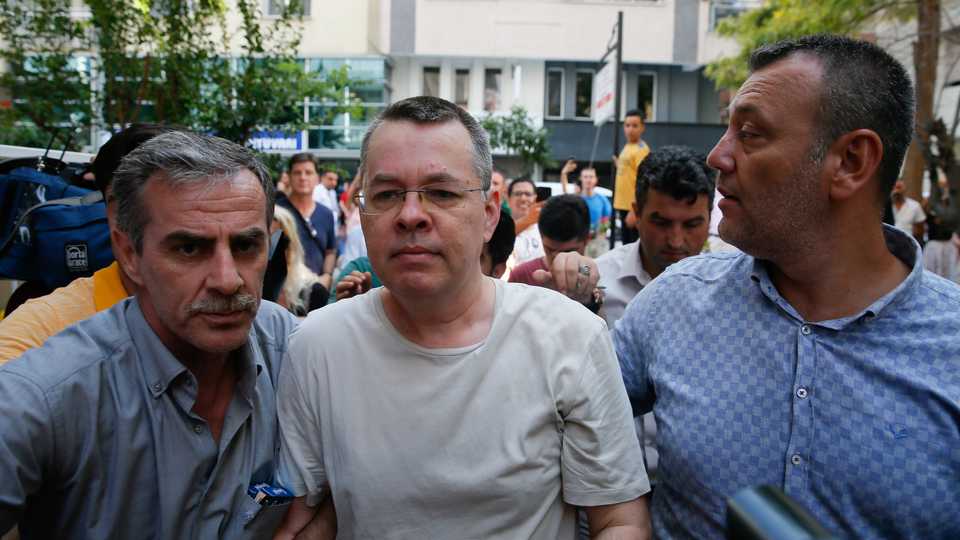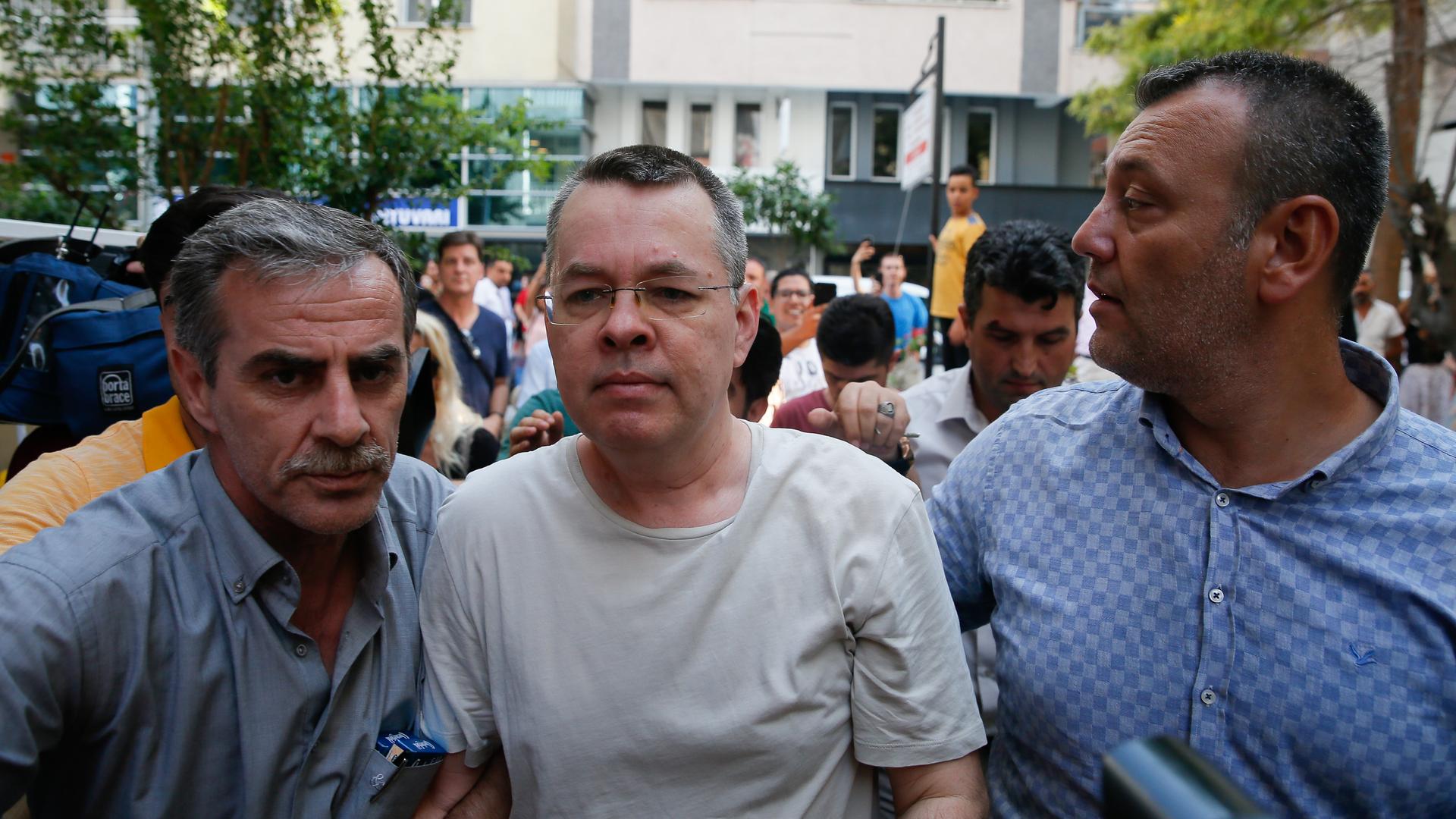
The trial of Andrew Craig Brunson, the American pastor originally from Black Mountain, North Carolina, who led the Izmir Resurrection Church, concluded in the Aegean city of Izmir.
Brunson had been under arrest since December 2016 and under house arrest since July. He was arrested on charges of espionage and for his alleged links to the PKK and Fetullah Terror Organisation (FETO), which is blamed for the unsuccessful July 2016 putsch attempt.
The arrest of the pastor soured Turkey-US relations and opened the proverbial Pandora’s Box, with the US supporting YPG, a PKK offshoot in the Syria war all the while refusing to extradite FETO leader Fetullah Gulen to Turkey.
Both countries have experienced suspension of visa services and retaliatory sanctions and tariffs.
October 12, 2018:
A Turkish court ruled on Friday to release Brunson from house arrest, sentencing him to three years in jail. But he will not spend any more time in custody because of time already served.
October 11:
US Secretary of State Mike Pompeo says, a day before the Brunson hearing, that the release of the pastor would be an important step and the right thing for Turkey to do.
New prosecution witnesses are expected to testify on Friday. His lawyer argues they lack relevance as their testimony will focus on incidents after Brunson’s arrest.
October 3:
Brunson’s lawyers petition the Constitutional Court, Turkey’s highest court, for his release after being rejected by high criminal courts in the Aegean Izmir province. The constitutional court is expected to take months to come to a decision.
August 10:
Trump tweets he authorised a doubling of duties on aluminium and steel imported from Turkey.
I have just authorized a doubling of Tariffs on Steel and Aluminum with respect to Turkey as their currency, the Turkish Lira, slides rapidly downward against our very strong Dollar! Aluminum will now be 20% and Steel 50%. Our relations with Turkey are not good at this time!
— Donald J. Trump (@realDonaldTrump) August 10, 2018
August 1:
The US imposes sanctions on Suleyman Soylu, Turkey’s interior minister, and Abdulhamit Gul, the justice minister.
Any property or interest in property belonging to Gul or Soylu within US jurisdiction would be blocked under the sanctions.
Americans would generally be prohibited from doing business with them.
July 25:
The High Criminal Court no 2 in Izmir rules Brunson’s detention would be turned into house arrest due to “health problems.”
The court allowed Brunson to live at his place in Izmir, but barred him from “abandonment of residence” and banned him from leaving the country.
April 16:
Brunson’s trial begins.
March 17:
Turkish prosecutors demand 15 years in prison for committing crimes on behalf of terror organisations without being a member. They also demand up to 20 years sought for political or military espionage.
The indictment says Brunson was allegedly involved in converting Kurds to Christianity and aimed to establish a Kurdish state for them
Brunson also allegedly had information about a possible coup attempt before July 2016 as one of his text phone messages to a US soldier showed his support for the coup plotters, the indictment said.
“We were waiting for some events to shake the Turks …, the coup attempt was a shock, many Turks trusted the military as they did in the past … We will eventually win,” the indictment quoted the text.
March 9:
US and Turkey begin talks in Washington in an effort to normalise relations.
February 15:
Tillerson visits Turkey in a bid to solve the problems between Washington and Ankara.
Weeks later, he was ousted by US President Donald Trump which added uncertainty to the relationship between the two countries.
December 28, 2017:
US and Turkey resume visa services.
October 8:
US and Turkey suspend visa services in a tit-for-tat move.
September 29:
Turkey’s President Recep Tayyip Erdogan suggests Ankara could free Brunson if Washington hands over Gulen.
“‘Give us the pastor back’, they say. You have one pastor [Gulen] as well. Give him to us,” Erdogan said. “Then we will try him [Brunson] and give him to you.”
“The [pastor] we have is on trial. Yours is not – he is living in Pennsylvania. You can give him easily. You can give him right away.”
US Department of State spokeswoman Heather Nauert said, “I can’t imagine that we would go down that road,” in response.
August 23:
Previously arrested for links with FETO, Brunson is brought to the courthouse and arrested again on charges of espionage and support for the coup.
May 16:
Trump requests Erdogan to return Brunson to the US at a White House meeting.
December 9,2016:
Brunson is arrested for his links to FETO.
October 7:
Brunson and his wife Norine Lyn Brunson are taken into custody for “threat against the national security.” Brunson and his wife are then sent to the immigration office for deportation.
Norine is released 13 days later.
A coup attempt in Turkey kills at least 250 people and leaves over 2,000 wounded.










Discussion about this post